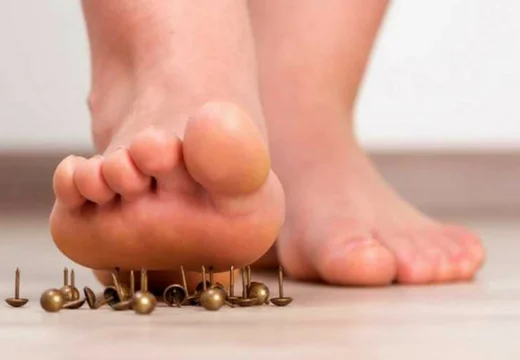
Have you ever felt a “pins and needles” sensation in your hands, feet, or other parts of your body? Or maybe a patch of skin that feels numb or less sensitive than usual? These sensations, known as tingling and numbness, can sometimes be harmless — but in some cases, they may signal a serious health condition.
What Is Tingling and Numbness?
- Tingling (Paresthesia): A prickling, burning, or “pins and needles” feeling that’s often temporary.
- Numbness: Loss of sensation or reduced ability to feel touch, temperature, or pain.
These sensations can occur together or separately. They might be short-lived or chronic, depending on the cause.
Common Causes of Tingling and Numbness
- Nerve Compression – From sitting with legs crossed or sleeping on your arm. Usually temporary and improves with movement.
- Peripheral Neuropathy – Common in diabetes; often starts in the feet and moves upward.
- Vitamin Deficiencies – Especially B12, B1, B6, and Vitamin E. Without correction, nerve damage can occur.
- Cervical or Lumbar Disc Problems – Herniated discs pressing on spinal nerves.
- Carpal Tunnel Syndrome – Compression of the median nerve in the wrist, causing tingling in the thumb, index, and middle finger.
- Stroke or TIA – Sudden numbness or weakness on one side of the body. Always a medical emergency.
- Multiple Sclerosis (MS) – An autoimmune disorder that can cause tingling, numbness, and muscle weakness.
When Should You Worry?
You should seek immediate medical attention if you have:
- Tingling or numbness with weakness or speech problems.
- Symptoms starting suddenly after a head or spine injury.
- Numbness that spreads or does not go away.
Diagnosis
Your doctor may recommend:
- Blood tests for diabetes or vitamin deficiencies
- Nerve conduction studies and reflex checks
- MRI or CT scan of brain or spine
- EMG (Electromyography)
Treatment
- Vitamin supplements for deficiencies
- Diabetes management to prevent nerve damage
- Physiotherapy for posture and nerve relief
- Surgery in severe cases like advanced carpal tunnel
- Medications such as pregabalin or gabapentin for nerve pain
Prevention Tips
- Avoid sitting in one position for too long
- Keep blood sugar under control
- Eat foods rich in B vitamins
- Practice good posture
- Take regular breaks from prolonged sitting or typing
Bottom Line: Tingling and numbness are your body’s way of telling you something is wrong. Sometimes the cause is minor, but persistent or unusual symptoms should never be ignored. Early diagnosis can prevent long-term nerve damage.

